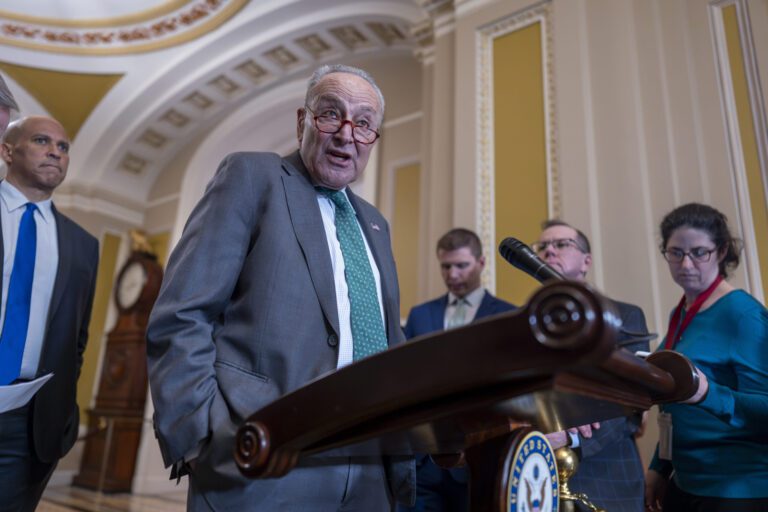Democrats Push Back Against GOP Funding Proposal amid Looming Government Shutdown
Introduction
As the deadline approaches for a potential government shutdown on September 30, Democrats in Congress are voicing strong opposition to the Republicans’ short-term funding proposal. The disagreement centers on issues related to healthcare spending and the restricted powers of President Trump regarding governmental funds.
The Republican Funding Proposal
On Tuesday, House Speaker Mike Johnson and House appropriators unveiled a plan to extend government funding through mid-November. Key details of the proposal include:
- Continuation of government funding at current levels
- An additional $80 million for enhanced security across the executive branch, Congress, and the Supreme Court, a response to the recent assassination of political figure Charlie Kirk.
Tom Cole, Chairman of the House Appropriations Committee, remarked, “Keeping our government open and working for the American people is not a partisan issue — and this clean, short-term funding extension reflects that.”
Democrat’s Rebuttal
Despite the GOP’s efforts, top Democrats swiftly labeled the funding deal as unacceptable. Key figures such as:
- Congresswoman Rosa DeLauro (House Appropriations)
- Senator Patty Murray (Senate Appropriations)
- Senator Charles Schumer (Senate Majority Leader)
- Congressman Hakeem Jeffries (House Minority Leader)
expressed their refusal to support the bill. Schumer and Jeffries criticized the Republican-only spending bill for failing to address the looming healthcare crisis, particularly regarding Affordable Care Act tax credits that are set to expire soon.
Political Implications
The funding bill requires 60 votes in the Senate to advance. With Senator Rand Paul already opposing it, the GOP may need the support of at least eight Democrats to pass the legislation.
Concerns Over Healthcare Tax Credits
Senator Susan Collins, Chairwoman of the Senate Appropriations Committee, stated she could consider extending tax credits linked to the Affordable Care Act, albeit not immediately. “You could wait,” Collins said regarding the ACA issue.
In contrast, Senator James Lankford noted that there is limited interest among GOP members in extending these tax credits as-is, citing a lack of ongoing COVID-19 emergencies.
Democrats in a Political Bind
The impending deadline puts Democrats in a challenging position. Back in March, Schumer and nine Senate Democrats voted for a Republican-led spending deal that faced significant backlash within their party, further complicating their current strategy. Some within the party, including Congressman Glenn Ivey, have speculated on a possible leadership change due to Schumer’s declining popularity.
Rising Concerns from Democratic Candidates
Several candidates for the 2026 Senate elections, including Illinois Lieutenant Governor Juliana Stratton, have publicly urged Democrats to oppose the current funding proposal. Stratton stated, “What we’re about to see play out in Washington, D.C. is not a normal budget showdown because Donald Trump is not a normal president.”
Democratic Senator Brian Schatz, who initially supported the March funding bill, has expressed his reluctance to back this new package, stating, “We’re off to a terrible start because the president said he doesn’t need Democrats and he wants to shut us out.”
Conclusion
With the government shutdown looming closer, the discord between Democrats and Republicans remains pronounced. Without bipartisan agreement on key issues, particularly healthcare funding, the possibility of a shutdown by the end of September is increasingly likely.
For more updates on this developing story, visit Politico or The Hill.
Focus Keywords: government funding proposal, Democrats in Congress, healthcare spending, Republicans, Affordable Care Act tax credits, government shutdown.


